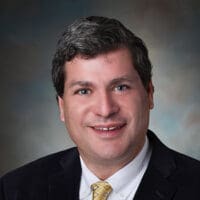
One in five college students reports declining mental health as a result of the COVID pandemic. This is on top of a recent generational rise in rates of anxiety and depression among college-aged youth. Could a unique course that blends academic and experiential learning help prepare first-year students for the stressors that lie ahead during college—and in life?
Such is the idea behind the Student Flourishing Initiative (SFI). “We were looking for ways to address the mental health crisis among students and promote flourishing on campus,” says Robert Roeser, Bennett Pierce Professor of Care, Compassion, and Human Development at Pennsylvania State University.
Three years ago, Roeser teamed up with professional peers—mostly Mind & Life Fellows—including Mark Greenberg at Penn State University, Mind & Life Chief Scientific Advisor Richie Davidson and John Dunne at the University of Wisconsin, and David Germano and Karen Inkelas at the University of Virginia, to develop and launch the initiative.
SFI resulted in a course, the “Art and Science of Student Flourishing,” that combines scholarship on human flourishing from the sciences and humanities with training in contemplative practice. As Roeser explains, the course challenges students at the outset of college to explore a question posed by poet Mary Oliver: “Tell me, what is it you plan to do with your one wild and precious life?” Students aren’t meant to necessarily to arrive at an answer, he says, but to begin a journey that moves them ever toward the goal of personal and social flourishing.
While social and emotional learning (SEL) programs typically target K-12 education, Roeser makes the point that college students not only struggle with stress and anxiety but bring more developed reasoning skills to SEL conversations. The Dalai Lama, too, affirmed the importance of training adolescents and young adults to manage complex emotions at Mind & Life’s 2018 Dialogue focused on the Education of the Heart. In order to bring about behavior change, “you need to internalize that knowledge and process it through sustained thinking and application,” the Dalai Lama told Roeser and other education experts during a robust exchange on the relevance of SEL interventions at various developmental stages.
Grounded in the science of neuroplasticity, SFI reinforces the notion that self-transformation is possible but requires practice, self-effort, and community. “We have to make an intentional effort and to befriend others who are interested in this path of flourishing,” says Roeser, “to cultivate mindful awareness of ourselves and the world with the support of a community.”
Far from promising freedom from suffering, the course explores how suffering is a part of life and, as such, a part of flourishing. “Suffering is here. Joy is here. We have to work with it all,” says Roeser. “To do that, we have to be awake and aware of ourselves and others.”
Suffering is here. Joy is here. We have to work with it all. To do that,
we have to be awake and aware of ourselves and others.
Over the course of a semester, SFI students explore 15 qualities associated with flourishing, among them compassion, interdependence, belonging, mindfulness, and courage. Poetry by the likes of Mary Oliver and Rumi features prominently, along with Viktor Frankl’s Man’s Search for Meaning and Martin Luther King’s Letter from a Birmingham Jail. Instruction in contemplative practices ranges from mindful movement to focused attention to lovingkindness meditation.
The course makes clear that individual and collective flourishing are bound up with each other. You can’t have a good life without addressing issues of injustice and inequity, affirms Roeser, adding “myths, poems, and science are all trying to get us to wisdom, a wisdom based on love.”
To date, roughly a thousand students have participated in the class across the three universities. A recent evaluation of course graduates found them to be less anxious and depressed, with a greater experience of flourishing in the COVID-era, than control group members.
As for next steps, SFI partners are looking at how to scale the model, which is designed to be easily adapted. While each of the three universities currently delivering the curriculum have employed variations, studies show outcomes to be the same. This fall, all three universities will host the class virtually for the first time.
With first-year students in the COVID era facing a host of unknowns, SFI empowers them with the understanding and skills to find meaning and purpose amidst challenging circumstances. As the Jewish psychiatrist Viktor Frankl noted after surviving the Nazi death camps, what we have in this life is not freedom from conditions, but freedom in our attitude towards conditions. “When we are no longer able to change a situation,” he wrote, “we are challenged to change ourselves.”
To learn more, email: contact@studentflourishing.org.
Additional resources related to student flourishing can be found at Education of the Heart.

Robert Roeser, PhD, MSW
Pennsylvania State University
Convening Faculty, Planning Committee Member, Research and Programs Council Member, Reviewer

Mark Greenberg, PhD
Pennsylvania State University
Convening Faculty, Fellow, Planning Committee Member, Reviewer

Richard J. Davidson, PhD
William James and Vilas Research Professor of Psychology and Psychiatry and Founder & Director of the Center for Healthy Minds, University of Wisconsin-Madison. Founder and Chief Visionary for Healthy Minds Innovations, Inc.

John Dunne, PhD
University of Wisconsin-Madison

David Germano, PhD
University of Virginia



